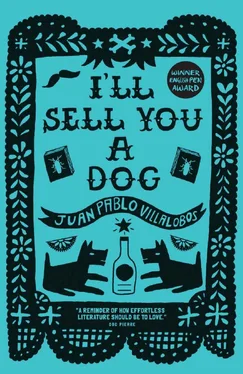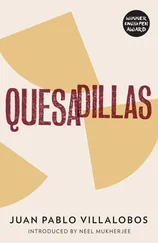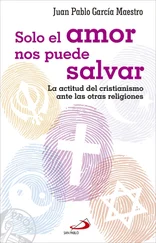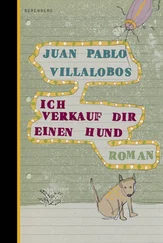Mum worked in the post office in the mornings and in the afternoons she took washing in at home. When we were grounded, we set to following her around, like two little street hawkers, asking: ‘What are we supposed to do shut up at home all day? What are we supposed to do shut up at home all day?’
Everything was said in duplicate, like the paperwork for some sort of official procedure, and in a way it was: an official procedure doomed to failure because the bureaucrat on duty, my mother, had an endless supply of patience.
‘Go and do your homework,’ she ordered us.
We scribbled down our homework and went back to the other work, trying to wear my mother down so she’d let us go and play in the street.
‘What are we supposed to do now? What are we supposed to do now?’
‘Study.’
‘We’ve studied already,’ we lied.
‘Go and play.’
‘Play what?’
‘I don’t know, whatever you like.’
We walked around the house, fiddling with things; I started kicking a ball about and it went whizzing past the china cabinet, my sister pulled her doll’s head off and said she needed to go to the shop to buy some glue. We returned to the attack.
‘What are we supposed to do now? What are we supposed to do now?’
Then my mother would fetch some blank sheets of the paper she used to bring home from the post office, a pack of colouring pencils that had been Dad’s and which she kept on top of a wardrobe, and pronounced the final sentence:
‘Go and do some drawing.’
Drawing was an activity that never ran out, you could do it for hours and hours, and my mother was very careful to ensure there were always adequate supplies of paper. She grounded us so often that it became a habit, and the day came when Mum had to replace the colouring pencils and then we started drawing even when we weren’t being punished. We went out into the streets and began drawing outside, which was something we remembered having seen Dad do.
Punishments came and went, and in the end I asked my mother at least to buy me a sketch pad to give some focus to my endless drawing. I began walking about, up and down, carrying that damn sketchbook, which gave me a reputation for being an artist — and a drifter — in the neighbourhood. For a time it even turned into a lucrative activity: people would pay me to paint portraits of their girlfriends and I would swap the drawings for marbles, initially, and then later on, for my first cigarettes. Then the neighbours grew bored of the artist and my sketchbook lost its cachet, and finally turned into a dreadful burden.
It hadn’t rained for almost two months, the Río Lerma was not much more than a stream and the lack of water in our building was making the pipes grumble. In the lobby they were saying that the pipes were squealing and, claiming that they couldn’t concentrate, the members of the salon decided to go and read in the Jardín de Epicuro. They paid a boy to bring their copies of In Search of Lost Time back and forth in a wheelbarrow. From the balcony of my apartment I saw the procession that spanned two blocks of Calle Basilia Franco, each person carrying a foldable Corona chair and turning left at Avenida Teodoro Flores, where they still had three blocks to go, and the little boy sweating and stopping to catch his breath after five steps. I yelled out to them: ‘The weight of literature! You’re going to kill the poor little squirt!’
The entire salon then had to leave the Jardín de Epicuro because there was a dog that kept hurling itself at them. The mutt was running between the salon members’ legs, scratching their ankles with its claws and trying to sharpen its teeth on the covers of the Lost Times. The final straw was when the animal tried to mount Francesca, clinging on and rubbing its genitals against her leg: it took the intervention of a passing kid to free her from the canine embrace. In an attempt to keep the salonists away from our block, I suggested they give the dog a stocking. The stocking came back; the dog had refused to eat it. I asked them to show me the hosiery: it was one of Hipólita’s, who wore special varicose-vein stockings. I told them to give the dog a normal stocking, made of nylon, and they went off to buy a pair in the haberdashery store. They returned, and the dog still wouldn’t go for it. I suggested they stuff one stocking with meat and roll it into a ball, without knotting it, so it would unroll in the mutt’s intestines. The butcher gave them a load of skins for free. Problem solved.
With the dog dead, the salon returned to the Jardín de Epicuro to opine, in a break from Proust, that one defect of my novel, which didn’t exist, was that I avoided talking about illness in it. Francesca told me so in the lift as we went up to the third floor after returning from our respective activities: I, from drinking the fourth and fifth beer of the day in the greengrocer’s shop, she from the salon. We hadn’t even reached the first floor and I’d had to put up with a speech on decrepitude as a fundamental theme of the twentieth-century European novel.
‘Don’t move,’ I interrupted her.
And I stamped on two cockroaches, one with my right foot, one with my left.
‘You see?’ Francesca said. ‘You don’t listen to me, you’re running away from the topic.’
‘The cockroaches are running away, I’m not running from anything.’
Between the first and second floors she tried to instruct me on something she referred to as ‘the literature of experience’ and which basically turned out to mean that one can only write about what one has experienced, about what one knows first-hand. I thought that this was like saying no one can explain what a dog-meat taco tastes like if they haven’t eaten one. If they don’t believe they’ve eaten one. If they don’t know they’ve eaten one. The fact is that everyone has eaten a dog-meat taco, even if they don’t know it, everyone knows what a dog-meat taco tastes like, even if no one thinks they do. This was the real paradox: not being able to write about something, not because one hadn’t experienced it but rather because one didn’t know one had experienced it. I’d got distracted, just for a change, and when we got to the third floor I clutched at a loose phrase: ‘The experience of illness is as good as any other,’ Francesca was saying.
‘Is it now! As good as romance, adventure, a journey or freedom?’
‘I’m talking about literature.’
‘Oh, right! And how would it improve my supposed novel if I started noting down the symptoms of bunions, gastric reflux, hay fever or fatty liver disease? What would the novel be for, inspiring pity? We can do that on our own, we don’t need books!’
‘Disease is the perfect metaphor for death, decadence, the finite nature of everything human.’
‘You mean instead of asking medical questions we should be asking rhetorical questions?’
‘You’re just like a child. Why do you act the enfant terrible ? You’re running away from reality, just look at the state you’re in — do you think I don’t know about all your ailments?’
‘Since when does reality matter? I feel stronger than a horse.’
Her face flushed with colour, even though the zip had just finished its ascent: the lift doors were opening. As we went our separate ways, I took advantage of the bulb that had blown on the landing to give her bum a squeeze. It was firm yet soft, a most agreeable revelation. The slap echoed around the walls of the corridor until the end of time.
One of the daily battles in the building was keeping the main door closed so we didn’t get any old Tom, Dick or Harry coming in. If anyone forgot, Francesca would call an immediate extraordinary general meeting of the Residents’ Association, which no one could get out of until the culprit had been found. She took disciplinary measures that ranged from simple tellings-off to fines that wound up in the jar where cash for unexpected building repairs was kept. The woman would have given both Breton and Stalin a run for their money. Following the famous Mormon incident, the discussion got as far as debating the need for a doorman. Everyone referred to it the same way: the day the Mormons got in. It even became a temporal reference point. People would say: a week before the Mormons got in. Or: two days after the Mormons got in. Things happened before or after the day the Mormons got in.
Читать дальше












